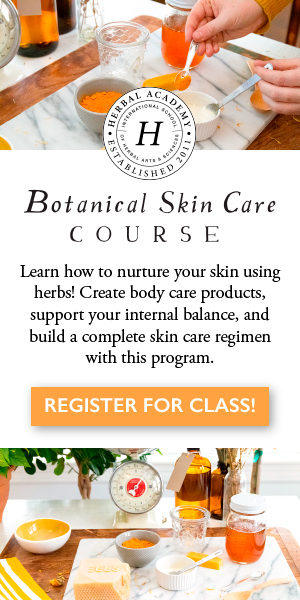Winter wellness is more than bundling up in cozy blankets and sipping on warm drinks, although avoiding crowded places is a solid start. Our immune systems are tested as the colder months arrive, and stress levels can climb with holiday demands. To navigate this season with vibrant health, it’s essential to focus on quality nutrition, boosting immunity and finding effective ways to relieve stress.
My recent experience with norovirus in our household brought this message home. It began with my youngest, who experienced the worst symptoms despite being a healthy eater, albeit one who enjoys carbs and limited sugars. In contrast, my eldest child and I, who have been experimenting with the carnivore diet—emphasizing quality organic, grass-fed, and grass-finished ingredients—experienced only mild stomach discomfort. This personal observation reinforced a theory I and many others have heard and thought before: there isn’t a flu season; there’s an increased sugar season. Viruses thrive on sugar, a concept supported by research from The University of Copenhagen showing us that bacteria and viruses infect our cells through sugars (Cao et al., 2021). Observing this theory play out in our lives was eye-opening.
Diet: Your First Line of Defense
Mindful Nutrition: Tackling Sugar During the Holidays
The holidays are a season of joy, connection, and indulgence. But let’s face it—it’s also the time when sugary treats seem to be everywhere! The temptation to indulge can be overwhelming, from cookies and candy canes to festive cocktails and pies. While enjoying your favorite holiday treats is okay, moderation is the key to maintaining your wellness throughout the winter.
Tips for Moderation
- Portion Control: Instead of loading your plate with every dessert on the table, pick one or two that you truly enjoy. Savor each bite to make it more satisfying.
- Balance It Out: Pair sugary treats with a source of protein or healthy fats to slow the release of sugar into your bloodstream, helping to avoid that dreaded sugar crash.
- Hydrate: Often, we confuse dehydration with hunger or cravings. Drinking water throughout the day can help curb the urge to overindulge.
- Plan Ahead: If you know you’ll be attending a party with a lot of sweets, eat a balanced meal beforehand to prevent overindulging on an empty stomach.
What to Do if You’ve Overindulged
Even with the best intentions, going overboard at a holiday party is easy. If you find yourself in a sugar overload, don’t panic. Here are some steps to help your body recover:
- Hydrate with Lemon Water: Drinking water with a squeeze of lemon can help flush excess sugar from your system while supporting your liver and digestion.
- Get Moving: A brisk walk or light movement after eating can help stabilize blood sugar levels and improve digestion.
- Skip Sugary Foods the Next Day: Give your body a break by focusing on whole, nutrient-dense foods like leafy greens, lean proteins, and healthy fats.
- Sip Herbal Tea: Teas like peppermint, dandelion root, or ginger can help soothe digestion and support detoxification.
The Importance of Grace
Above all, remember to be kind to yourself. The holidays are meant to be enjoyed; no indulgence will derail your wellness journey. By being mindful, planning, and supporting your body after indulgence, you can strike the perfect balance between enjoying the season and prioritizing your health.
Herbs for Winter Wellness
Herbs have been used for centuries to combat illness and support the immune system, thanks to their anti-viral, anti-bacterial, and anti-microbial properties. Here are some of the best herbs to include in your winter wellness routine:
- Elderflower and Elderberry: These are excellent for supporting the immune system and fighting off colds. Elderberry, in particular, is a powerful ingredient in syrups that can help shorten the duration of illness.
- Echinacea: Known for its immune-boosting properties, echinacea can be used in teas or tinctures to help ward off colds.
- Ginger: This versatile herb is anti-inflammatory and warming, making it perfect for teas or as an addition to meals.
- Ashwagandha: This adaptogenic herb helps manage stress and supports overall immunity. Use it in tinctures or as a powder added to smoothies.
- Tulsi (Holy Basil): Known as the “elixir of life,” Tulsi is excellent for immune support and stress relief and is commonly consumed as tea or tinctures.
- Oregano: Oil of oregano, not to be confused with essential oil, is a potent anti-microbial and anti-viral remedy. Available in capsules, it can be a powerful tool for maintaining health during the winter. This is a brand that I recommend. (https://amzn.to/3P0tZqy)
- Stinging Nettle: This herb packs a sting while fresh and is very effective when consumed when dried in tea, tincture, or even on top of a salad. It is widely considered one of the most nutrient-dense wild plants rich in vitamins and minerals. You will absorb the goodness of this wild herb better than any pill.
Essential Oils: A Powerful Ally for Winter Wellness
Incorporating essential oils into your winter wellness routine can provide natural, effective support for your respiratory and immune systems. Numerous studies have demonstrated the anti-viral, anti-inflammatory, and immune-boosting properties of essential oils, making them an excellent complement to healthy habits like moderating sugar intake.
For instance, research by Sienkiewicz et al. (2014) highlights how essential oils such as eucalyptus, thyme, and oregano can inhibit viral replication. This is especially beneficial during cold and flu season when respiratory health is a top priority. While sugar can fuel inflammation and weaken your immune system, essential oils work to counteract these effects, offering a holistic way to stay healthy.
Simple and Effective Ways to Use Essential Oils
- Sniffy Stick: A personal inhaler is an easy, portable way to benefit from essential oils throughout your day.
- Diffuser: Add your chosen blend to a diffuser to fill your space with soothing, therapeutic aromas.
- Steam Tent: For deep respiratory support, add 2–3 drops of essential oil to a sink or bowl of hot water. Drape a towel over your head and inhale deeply for several minutes.
These methods not only support your respiratory system but also promote relaxation—something we all need during the often-stressful holiday season.
DIY Winter Wellness Sniffy Stick Blend
Here’s a simple and effective blend you can use to support respiratory health and boost your winter wellness:
- 4 drops Eucalyptus essential oil – Clears congestion and supports the respiratory system.
- 3 drops Thyme essential oil – Known for its anti-viral and immune-boosting properties.
- 2 drops Oregano essential oil – A powerful anti-viral that helps fight off seasonal bugs.
- 1 drop Lemon essential oil – Adds a refreshing note while offering additional immune support.
Instructions:
- Add the essential oils to the wick of a blank sniffy stick (available online or at health stores).
- Insert the wick into the inhaler tube and close it tightly.
- Carry your sniffy stick with you and use it as needed by taking slow, deep inhalations through your nose.
Safety Note
While essential oils can be incredibly beneficial, it’s important to use them safely. Essential oils are highly concentrated, and improper use can cause skin irritation, sensitivity, or adverse effects. To learn more about using essential oils safely, check out my blog on for detailed guidelines on dilution, usage, and selecting high-quality oils.
Wrapping Up Winter Wellness
This winter, prioritize your winter wellness by adopting a nutrient-rich diet, leveraging the power of herbs for immunity, and incorporating essential oil’s antiviral properties into your daily routine. By strategically reducing sugar intake, using herbs and essential oils, and practicing stress relief techniques, you can boost immunity and keep your body strong and resilient. With mindful choices and natural support, you’ll be well-equipped to stay healthy and thrive throughout the season.
- Viruses and Sugar Intake: Research indicates that certain viruses utilize sugars on host cell surfaces to facilitate infection. For instance, the spike protein of SARS-CoV-2 binds to specific sugars to enter cells. This highlights the role of sugars in viral infections.
- Antiviral Properties of Essential Oils: Studies have demonstrated that essential oils, such as those from eucalyptus, thyme, and oregano, exhibit antiviral activities. For example, eucalyptus essential oil has shown effectiveness against various respiratory viruses.




